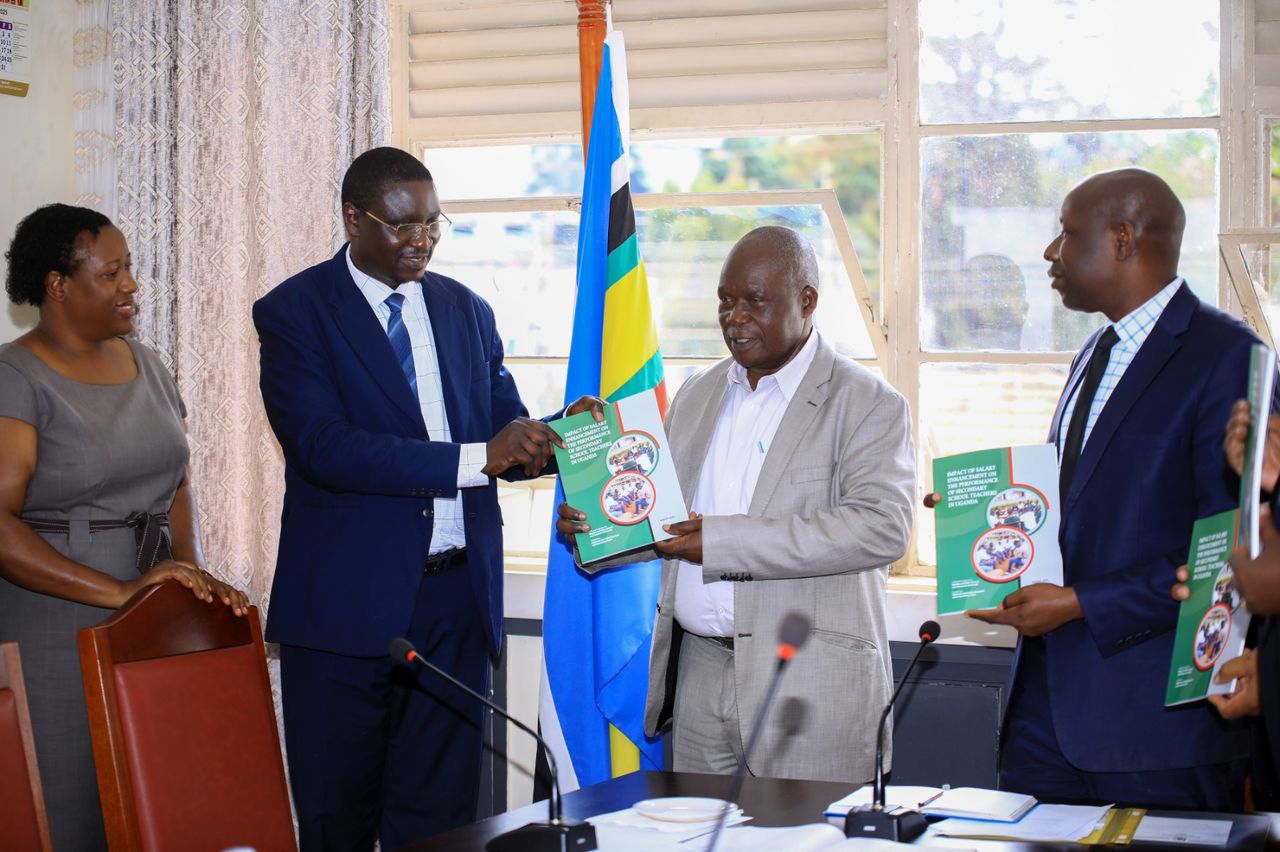Makerere University, in partnership with the Ministry of Public Service, has released a landmark study exposing significant inequalities created by the Government’s salary enhancement policy for secondary school teachers.
Funded by the Makerere University Research and Innovations Fund (Mak-RIF), the research provides the clearest evidence yet on how disparities in teacher pay are shaping motivation, performance, and overall education quality in Uganda.
Led by Cyprian Misinde, the study evaluated the effects of the 2018 pay reform, which sharply increased salaries for science teachers while leaving arts teachers considerably behind.
By 2022, science teachers had reached 77 percent of the approved pay target, whereas arts teachers remained at just 12 percent, creating what researchers describe as a “structural divide” within Uganda’s education system.
The study involved 1,352 teachers across 14 sub-regions, 28 interviews with head teachers, and 28 focus group discussions with students, making it one of the most comprehensive evaluations of teacher welfare and performance in the country.
Findings revealed stark contrasts between science and arts teachers. Science teachers reported higher motivation, improved performance, stronger intentions to remain in the profession, and better student outcomes.
In contrast, arts teachers expressed declining morale, deep frustration, and a growing sense of professional devaluation, largely tied to stagnant wages and widening compensation disparities.
Across the board, 85.3 percent of teachers agreed that better pay significantly improves retention and performance.
The report also noted that while science teachers benefited from enhanced salaries, the reform was not accompanied by similar investments in school infrastructure, teaching materials, and classroom resources.
Researchers warn that without holistic improvements, the salary gap could entrench divisions among teachers, weaken collaboration, increase turnover, and worsen inequalities in student learning outcomes.
Misinde emphasized that the growing pay gap undermines Uganda’s human capital development goals under NDP III, the emerging NDP IV framework, and global education and equity targets under SDG 4 and SDG 10.
He noted that although prioritizing science aligns with the national STEM agenda, continued neglect of arts subjects threatens fairness, balance, and inclusiveness in the education system.
Public Service Minister Wilson Muruli Mukasa reaffirmed government’s commitment to improving teacher welfare, noting that Shs 2.5 trillion has been allocated for salary enhancement by the 2025/26 financial year.
He acknowledged, however, that some teachers whose salaries were increased are now applying for early retirement—a trend that signals the need for deeper evaluation of the policy’s long-term effects.
State Minister for Gender and Cultural Affairs Peace Mutuuzo urged education stakeholders to focus on equity, sustainability, and balanced investment in both science and arts subjects.
This study is among the first outputs under the Memorandum of Understanding signed in January 2024 between Makerere University and the Ministry of Public Service, highlighting the importance of evidence-based research in shaping governance and policy decisions.
Recommendations
The research team urged the Government to review the implementation of the salary enhancement policy and reduce widening disparities between science and arts teachers to support fairness, morale, and balanced learning.
They also recommended increased investment in school infrastructure, classroom resources, and teaching materials, as well as reforms aligned with Uganda’s national development priorities under NDP IV and the Sustainable Development Goals.
The study underscores the critical link between remuneration, teacher motivation, efficiency, and long-term retention in Uganda’s education sector.


